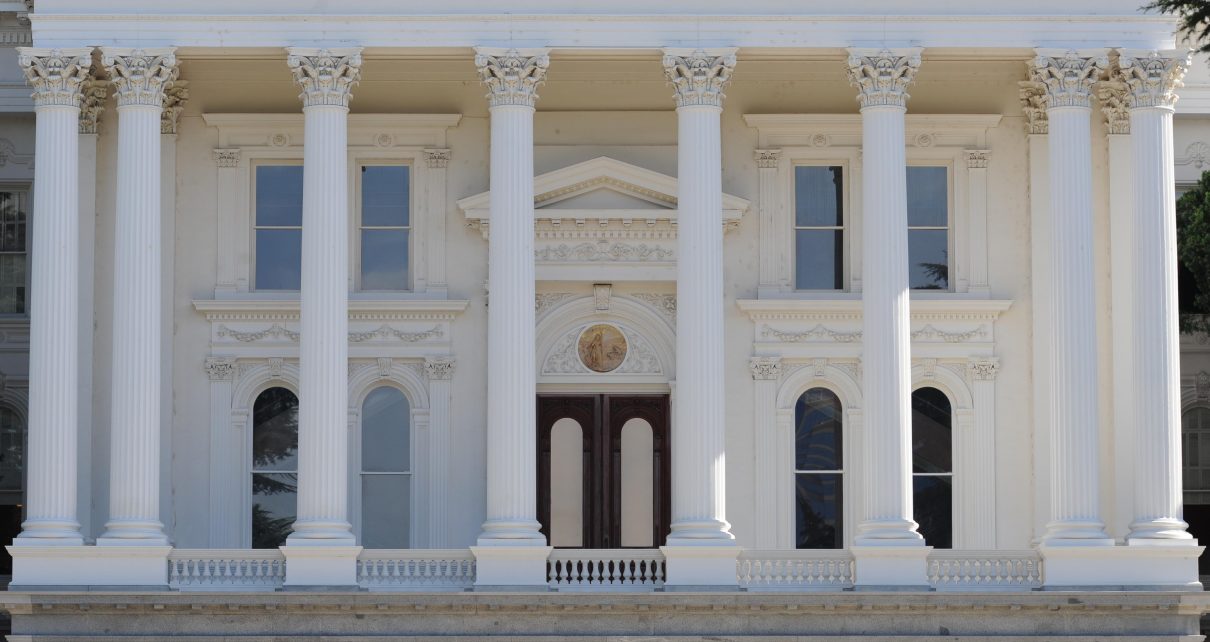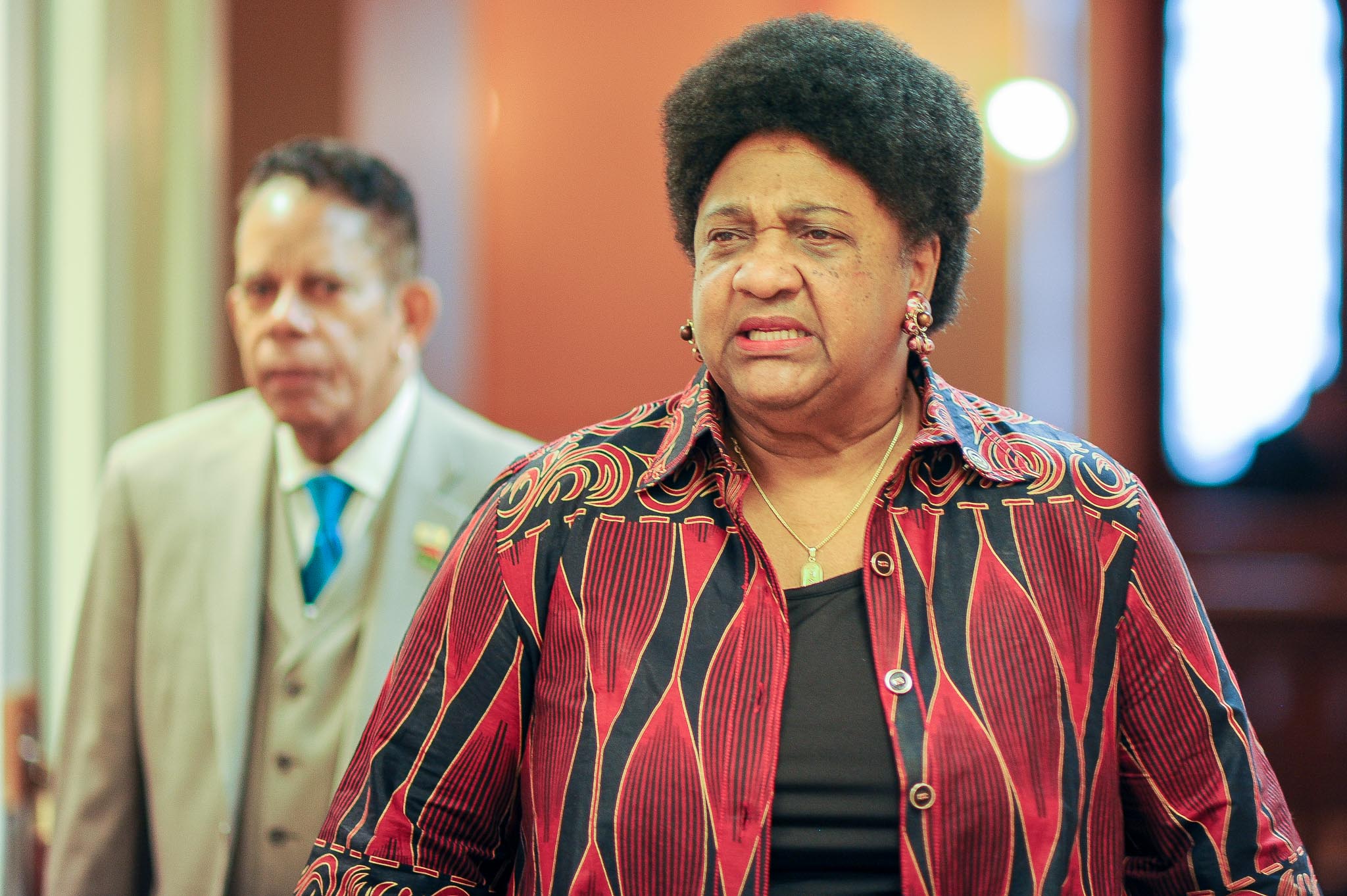
California State Capitol. (Photo: Kevin Sanders for California Globe)
Gubernatorial Records Program at California Secretary of State
Some California’s Governors chose to donate the remainder of their records elsewhere
By Chris Micheli, October 8, 2022 5:14 pm
The California Secretary of State (SOS), among numerous other programs that are administered by her office, has a gubernatorial records program. The SOS maintains the Governor’s Chaptered Bill Files from 1943 to 2018.
As explained by the SOS, “the Governor’s Office maintains files for each legislative bill signed into law (chaptered) or vetoed. These files typically contain analyses prepared by the Legislative Counsel, Attorney General, other constitutional officers, state agencies, and the Governor’s staff. Also available is correspondence from the bill’s author as well as affected organizations and individuals. Vetoed bill files include the text of the Governor’s veto message.”
According to the SOS, “the California State Archives holds over 10,000 cubic feet of records from the Governor’s Office. Types of records include executive clemency files, pardons, proclamations, executive orders, speeches, press releases, and enrolled bill files.” In addition, Governor Earl Warren and Goodwin Knight donated additional records to the State Archives that are available to researchers.
Government Code Section 6268 sets forth the relevant requirements related to Governor’s Office records:
(a) Public records, as defined in Section 6252, in the custody or control of the Governor when he or she leaves office, either voluntarily or involuntarily, shall, as soon as is practical, be transferred to the State Archives. Notwithstanding any other law, the Governor, by written instrument, the terms of which shall be made public, may restrict public access to any of the transferred public records, or any other writings he or she may transfer that have not already been made accessible to the public. With respect to public records, public access, as otherwise provided for by this chapter, shall not be restricted for a period greater than 50 years or the death of the Governor, whichever is later, nor shall there be any restriction whatsoever with respect to enrolled bill files, press releases, speech files, or writings relating to applications for clemency or extradition in cases which have been closed for a period of at least 25 years. Subject to any restrictions permitted by this section, the Secretary of State, as custodian of the State Archives, shall make all those public records and other writings available to the public as otherwise provided for in this chapter.
(b) Except as to enrolled bill files, press releases, speech files, or writings relating to applications for clemency or extradition, this section does not apply to public records or other writings in the direct custody or control of any Governor who held office between 1974 and 1988 at the time of leaving office, except to the extent that that Governor may voluntarily transfer those records or other writings to the State Archives.
(c) Notwithstanding any other law, the public records and other writings of any Governor who held office between 1974 and 1988 may be transferred to any educational or research institution in California provided that with respect to public records, public access, as otherwise provided for by this chapter, shall not be restricted for a period greater than 50 years or the death of the Governor, whichever is later. Records or writings shall not be transferred pursuant to this paragraph unless the institution receiving them agrees to maintain, and does maintain, the materials according to commonly accepted archival standards. Public records transferred shall not be destroyed by that institution without first receiving the written approval of the Secretary of State, as custodian of the State Archives, who may require that the records be placed in the State Archives rather than being destroyed. An institution receiving those records or writings shall allow the Secretary of State, as custodian of the State Archives, to copy, at state expense, and to make available to the public, any and all public records, and inventories, indices, or finding aids relating to those records that the institution makes available to the public generally. Copies of those records in the custody of the State Archives shall be given the same legal effect as is given to the originals.
The above provisions added gubernatorial records to the California Public Records Act. Under section 6268 of the Government Code, all administrations following former Governor George Deukmejian are required to transfer all gubernatorial records to the State Archives.
As a result, the enrolled bill files, press releases, and speech files are open to the public as soon as the Governor leaves office. Writings related to applications for clemency or extradition are available for research after the cases has been closed for a period of at least 25 years. The Governor may restrict all other records for up to 50 years or the death of the Governor, whichever is later.
Prior to this legislation in 1988, California’s Governors were required to preserve only a small group of records that were considered to be public, although most Governors deposited these records at the State Archives.
Finally, the Secretary of State notes that California’s Governors from 1959–1991 chose to donate the remainder of their records to the following institutions:
- Edmund G. “Pat” Brown, Bancroft Library at the University of California, Berkeley
- Ronald Reagan, Hoover Institution at Stanford University; however, the records are now located at the Ronald Reagan Presidential Library
- Edmund G. “Jerry” Brown, University of Southern California
- George Deukmejian, Hoover Institution at Stanford University; however, the records are now located at the California State University, Long Beach University Library
- Miscellaneous Civil Action Proceedings - February 23, 2026
- Probate Code Could Be a Basis for Statutory Interpretation Principles - February 22, 2026
- Conservation Banks - February 22, 2026





4 thoughts on “Gubernatorial Records Program at California Secretary of State”